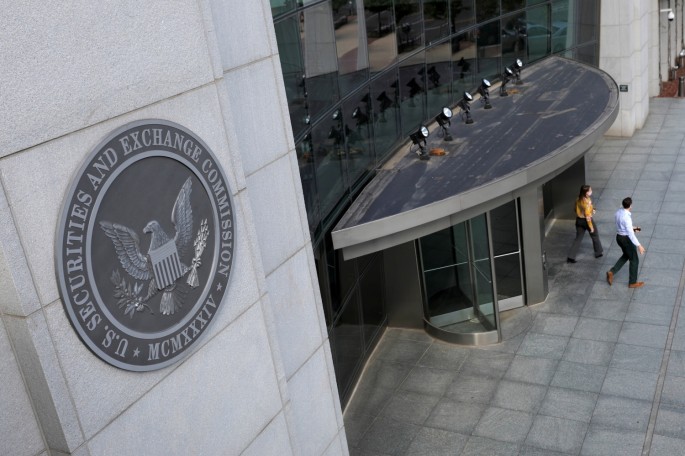The U.S. securities regulator has ramped-up its inquiry on Wall Street's blank check acquisition frenzy, homing in on potential conflicts of interest created when banks act as underwriters and advisers on the same deal, three people with direct knowledge of the matter told Reuters.
The Securities and Exchange Commission is exploring whether certain fee structures may incentivise underwriters on special purpose acquisition company, or SPAC, listings to secure unsuitable deals when also advising on the later stage merger, potentially putting investors at risk, the people said.
Banks that have received SEC requests for information include top SPAC underwriters Citigroup, Credit Suisse Group<CSGN.S>, Morgan Stanley and Goldman Sachs, they said.
Spokespeople for the banks declined to comment.
SPACs are listed shell companies used to take private companies public, sidestepping the more traditional and lengthy initial public offering (IPO) process.
Reuters reported in March that the SEC's enforcement division had opened an inquiry on Wall Street banks' SPAC dealings, sending letters to several institutions seeking information on deal risks and internal controls.
Since March, the SEC has focused its inquiry on a group of banks, law firms and SPAC sponsors involved in troubled deals and has sought more information about the deals and interviewed executives concerned, according to two of the three sources.
The SEC is particularly interested in the fees banks have earned when playing several roles on a deal, all three sources said. They declined to say which deals were under scrutiny.
"The big issue for the SEC is to understand if the advisers are conflicted," said one of the people.
A spokesperson for the SEC did not respond to requests for comment.
SPAC sponsors typically pay banks a 5.5% fee for underwriting the IPO, part of which is paid up front, with the rest paid upon completion of the merger.
Underwriting banks can earn more fees if they also go on to represent the merger target and help the SPAC sponsor raise additional cash from private investors to finance the takeover.
The SEC is examining potential conflicts in such situations when a bank works for both sides of the transaction and stands to earn a chunk of fees when the merger goes through.
Critics say such arrangements could incentivise banks to talk up targets or play down potential problems, which could harm investors if the target company's earnings underperform, or other regulatory or legal issues emerge following the merger.
SPAC returns have trailed the S&P 500 and some SPACs have been accused by shareholders and government investigators of misleading disclosures..
The sources declined to be named because the discussions are private. Regulatory requests for information do not necessarily imply wrongdoing.
EXTRA DILIGENCE
Under the rules, lawyers and accountants are required to disclose their fees in the SPAC's regulatory filings, but banks are not. In its recent inquiries, the SEC has asked banks for more information on their payouts, the three sources said.
The SEC has also asked the banks for information on the due diligence they performed on SPAC mergers, including when reviewing revenue growth projections and other disclosures made by the target companies, one of the sources said.
The increased scrutiny has prompted some banks to review their processes and increase due diligence, the third source said, adding that some banks and sponsors were also more frequently separating the underwriting and advisory roles.
SPACs have existed for decades, but over the past 18 months the deal structure has been popularized by high-profile sponsors and boosted by easy monetary conditions.
A record nearly $100 billion was raised by U.S. SPACs in the first quarter of 2021, according to Dealogic, before dealmaking flagged amid market saturation and heightened SEC scrutiny.



























